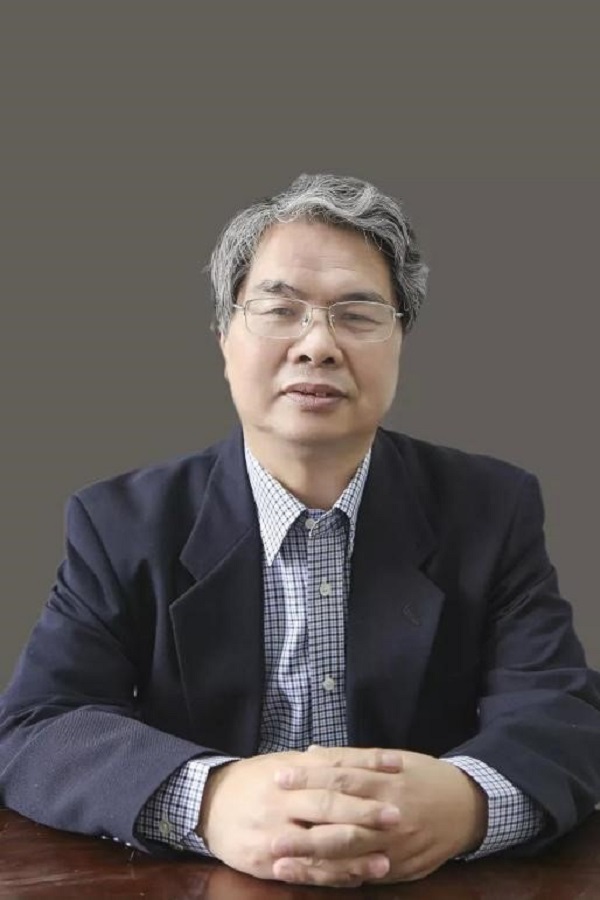XJTU alumnus elected Member of Academia Europaea
Jiao Licheng, an alumnus of Xi'an Jiaotong University (XJTU), was recently chosen among 229 scholars for election as a member of Academia Europaea.

Jiao Licheng, a XJTU alumnus
Jiao graduated from XJTU with a master's degree in theoretical electrical engineering in 1984. He continued his studies and achieved the doctorate degree in the same major in 1990.
He is currently the leading professor of Xidian University, the director of the Faculty of Computer Science and Technology, the dean of the School of Artificial Intelligence, and an IEEE/IET/CAAI/CAA/CIE/CCF Fellow. (IEEE/IET/CAAI/CAA/CIE/CCF refers to the Institute of Electrical and Electronics Engineers, the Institution of Engineering and Technology, the Chinese Association for Artificial Intelligence, the Chinese Association of Automation, the Chinese Institute of Electronics, and the China Computer Federation).
Jiao's main research directions are intelligent perception and computing, image understanding and target recognition, deep learning and brain-like computing. More than ten PhDs trained by him have won the National Outstanding Doctoral Dissertation Award, Nomination Award and Shaanxi Provincial Outstanding Doctoral Dissertation Award.
For more than 30 years, the national high-level talent innovation team led by him has conducted in-depth research on optimization and learning problems in nonlinear, multi-scale, and unstructured intelligent information processing. The theoretical framework of immune evolutionary optimization and the framework of co-evolutionary optimization were systematically proposed.
Aiming at the bottleneck problem in the interpretation of remote sensing image content with complex application background, the concept and theory of Govic singularity multi-scale detection were proposed and successfully applied to the interpretation and processing of complex images. The team also developed a remote sensing image big data brain-like interpretation system and the first domestic brain-like SAR system.
Jiao has co-published many monographs in his field, including Coevolutionary Computation and Multiagent Systems, Brain and Nature-Inspired Learning, Computation and Recognition. Related works have been selected by more than 100 domestic colleges and universities as textbooks and reference books from undergraduate to postgraduate level.
His works have enlightened many researchers in the field of intelligent information processing, and promoted related theoretical research and education.
Jiao has successively won the second prize of the National Science and Technology Award, the Wu Wenjun Outstanding Contribution Award for Artificial Intelligence and the first prize of provincial and ministerial science and technology awards more than ten times. He was also awarded as a national model teacher.
He has been a deputy to the National People's Congress, an expert of the Academic Degree Committee of the State Council, an expert of the evaluation group of the Postdoctoral Management Committee of the Ministry of Human Resources and Social Security, and vice-chairman of the CAAI.
He has trained many scholars, experts and industry leaders including IEEE Fellow chief scientists of the 973 Plan (a national key research development plan), chief scientists of Jingdong Finance, CTO of SenseTime, a Chinese AI unicorn, and strategic experts of Alibaba DAMO Academy on Discovery, Adventure, Momentum and Outlook.
The Academia Europaea was founded in 1988 and is headquartered in London. It is an international scientific organization jointly initiated by the ministers of science in European countries and national-level academies like the Royal Society which represents the top academic performances of European countries.
Its members are mainly from European countries, representing the highest scientific level and academic status in the European humanities and natural sciences.
At present, there are about 4,500 members, including 72 Nobel Prize winners. Many scientists won the Nobel Prize only after being elected a member of the Academy.

